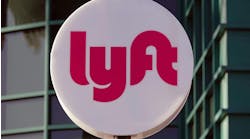Columbus AV pilot “LEAPs” into residential service
Smart Columbus began service Feb. 5 on the Linden LEAP, a self-driving shuttle that will operate on public streets in a neighborhood setting – a reported first for the U.S. autonomous vehicle industry.
LEAP is an acronym for Linden Empowers All People and the service was designed to better connect Linden residents to community resources and Central Ohio Transit Authority’s (COTA) CMAX line through a first/last mile solution to help address the neighborhood’s mobility needs.
“Bringing smart technology and mobility into our neighborhoods is an important tool for sharing success and expanding opportunity,” said Columbus Mayor Andrew Ginther. “The launch of the Linden LEAP will help us guide future innovations in the community and beyond, using self-driving technology to help reduce barriers to community resources.”
Two all-electric vehicles will carry up to 12 passengers at a time and service a 2.9-mile, four-stop route. The vehicles are wheelchair accessible and have a maximum speed of 25 mph. The shuttles, which are free to ride, will operate 6:00 a.m. to 8:00 p.m. daily, with stops in service during school arrival and dismissal times to comply with a federal mandate.
“The Linden LEAP is a pilot program like no other in the nation,” said Columbus City Councilmember Shayla Favor. “For the first time we are inviting the public to use self-driving technology on public roads in a residential neighborhood. Linden is at the forefront of shaping smart mobility in the United States.”
The service will operate for a one-year pilot period, which is funded through a grant awarded to Columbus through the U.S. Department of Transportation’s Smart City Challenge. Easy Mile and EmpowerBus are also partners in the project.
A human operator, called a customer service ambassador, will always have access to drive controls and will ride aboard each vehicle. Local mobility startup EmpowerBus employs all shuttle operators.
“As a start-up focused on access and equity, being able to provide innovative mobility to the Linden community and its neighbors is truly an honor,” said Aslyne Rodriguez, CEO of EmpowerBus. “Advancement of technology should enhance the lives of all communities. Being able to provide the team that delivers that service, who call Linden home or who once grew up there, is next-level connection to our mission and vision.”
The shuttles operate using a suite of sensors that deliver a 360-degree view around the vehicle. The sensors and intelligent software help the vehicle understand where it is; in which direction to steer; and when to slow down, accelerate or stop for something in its path. Mapping allows the vehicle to know every inch of its route and navigate through various traffic conditions.
Sharad Agarwal, senior vice president of EasyMile in North America stated, "EasyMile has deployed our vehicles and technology around the world, but Columbus is the first location where our autonomous software is powering a fleet-based system in a residential neighborhood. This represents the next revolution in autonomous mobility, and we are thrilled Columbus can showcase this to communities everywhere."
“Linden residents played a very important role in working with city leaders to identify the resources and access points that are frequently serviced by those in the area,” said Lawrence Calloway Jr., chair of the South Linden Area Commission. “We’re proud to say that Linden is making history as being home to the first public self-driving shuttle in a residential area – all eyes are on Linden.”

Mischa Wanek-Libman | Group Editorial Director
Mischa Wanek-Libman is director of communications with Transdev North America. She has more than 20 years of experience working in the transportation industry covering construction projects, engineering challenges, transit and rail operations and best practices.
Wanek-Libman has held top editorial positions at freight rail and public transportation business-to-business publications including as editor-in-chief and editorial director of Mass Transit from 2018-2024. She has been recognized for editorial excellence through her individual work, as well as for collaborative content.
She is an active member of the American Public Transportation Association's Marketing and Communications Committee and served 14 years as a Board Observer on the National Railroad Construction and Maintenance Association (NRC) Board of Directors.
She is a graduate of Drake University in Des Moines, Iowa, where she earned a Bachelor of Arts degree in Journalism and Mass Communication.



